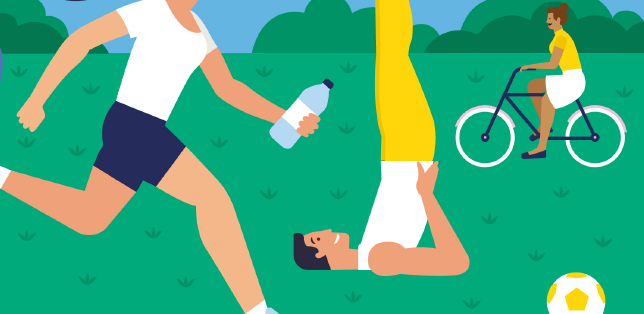Natural Methods to Beat Stress
Stress is one of our body’s natural responses to pressure, but most of us are being overwhelmed by it. It can very negatively affect your behaviour, body, and mood, with symptoms like anxiety, headaches, and irritability only exacerbating the duress we’re already under. Its causes vary from, however, and so do its effects: what affects me very badly may mean nothing at all to you. This makes it more difficult to treat, but the information outlined here is varied enough for almost anyone to find something useful.
Stress can be very harmful to you, and the cause of upsets in your health and lifestyle, so try to nip it in the bud. Management of strain and pressure should be a top priority, but this is often difficult to realise because you just don’t know where to start. Besides getting a hobby to enrich your downtime, like watching movies online, or enjoying sports wagers at betting sites, for example, here are some other things for those struggling to cope with the demands of day-to-day.
Use Physical Activity to Relax
Any and all kinds of physical activity are good for stress-management. Exercising calms your mind and releases feel-good endorphins, and as little as 45-minutes a day will go a long way towards helping you wind down.

Get Organised
Organising your workload leads to an increased sense of control, and the peace of mind associated with this, and there are many ways to do this. Start with looking at your overall time-management, and prioritise the most important tasks higher up your list, scheduling enough time to complete them, and ticking them off your To Do list as they are completed.
Add Herbs to Your Daily Diet
Ashwagandha, sometimes called Indian ginseng or winter cherry, has proven to be very effective in reducing the negative effects of stress. Ayurvedic texts and modern research both confirm that it works by rejuvenating body and mind in the short-term, and so reduces the damage of unremitting pressure in the long-term. Ashwagandha is an adaptogen that assists in the body stabilising physiological processes, propping up a healthy balance between various biological systems, and so fosters an increased resilience to tension of any kind.
Pay Attention to Your Diet
Your eating habits have a massive impact on your well-being, obviously. Ensuring that your diet is healthy, with a balance of all the necessary food groups being in place and the necessary nutrients being provided for is essential. Make sure you have dairy, fish, fruits, poultry vegetables, and whole grains daily, and you’ll meet your body’s requirements for carbohydrates, fat, minerals, proteins, and vitamins. It stands to reason that a body that is properly nourished is more able to cope.
Settle Down and Go to Sleep
This is one of the most important tools for stress-management, and not sleeping enough very typically leads to fatigue-related irritability. Oversleeping is dangerous too, and can depress us, which also puts our health at risk. Find out how much shut-eye you need, with the average adult requiring between seven and nine hours, and make sure you get it!